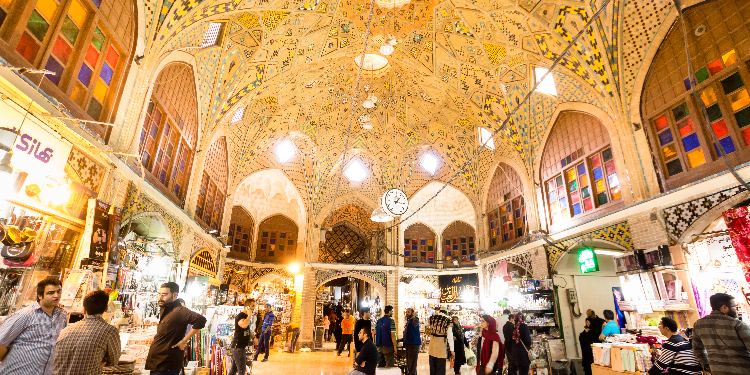
Vanessa left her birth country, Venezuela, after falling in love. She moved to Iran, where her husband is from, and has only just returned to her native country. In this interview, Vanessa gives us an insight into life in Iran, which is not the most popular expat destination, to say the least.
How did you decide to move to Iran?
For love. I was not even sure where Iran was on the map before that. I met my husband when he traveled to Venezuela for work, six months after his contract ended he took me to Tehran.
What were the procedures like to settle the new country?
Hard! I had to renew my visa every month because they did not allow us to get married in Iran, and my embassy refused to facilitate the process. We had to travel to my home country, get married there, and return to Iran to be allowed to stay. When you get married, you automatically obtain citizenship by marriage. Legally, religious conversion has no basis, but in practice they made me convert to Islam to approve my marriage at the consulate. After that you can get the passport and the carte melli (identity card).
Was it easy to learn the language?
It was not easy, you have to learn a new alphabet, write from right to left, they don't write the vowels, so it is complex to read a word with only consonants and guess the vowels. Many consonants have the same sound, which makes writing difficult and the vowels that are written can have several sounds.
What was your daily life like?
Being at home, going shopping, cooking and cleaning and watching Turkish soap operas, absolutely all household responsibilities fall to the woman, and Iranians love to have house meetings with arak (the black market alcoholic beverage). Visits every weekend are sought after and longed for, your house becomes the meeting point or the club on duty, since the only places where couples who do not live together can spend time together is at someone's house.
What are the most popular activities there?
Barbecue at home, travel to the north of the country with friends and rent an inn or hotel in the desert. But there is always some risk, especially if the police find you with alcoholic beverages.
Are Iranians welcoming?
Yes, they are very welcoming people. In Iran there is the Taarof, it is a type of extreme courtesy, they offer you things because it is what custom and education indicates, for example if you point to a painting and say that it is very nice, they will give you the said painting. My mother-in-law offered me things and I actually took them. And she realised I did not really understand the premise of Taarof.
What surprised you the most when you arrived in Iran?
The weather! I thought I was going to see dunes and camels. I was surprised by an urbanized city with subzero climates.
What did you miss the most about your country?
The beaches, going on weekends to enjoy with your family. In Iran, I can't go to the beach to swim with my son unless he is covered with several layers of clothing, and that too if the police turn a blind eye and allow me, the beaches of Iran are to see, not to swim.
How about the Iranian way of life?
So much effort to maintain a good appearance of abundance and luxury, so much effort to please, so much effort to be the perfect host, when that effort comes from the heart it is very nice, and many times it is, but sometimes it is about appearance. Even when you are getting married, you don't know if the person is showing you their true intentions or what is socially desirable.
What advice would you give to those who want to move to Iran?
Think about it, think about it once, twice and three times. Love is not enough to make such a big change. If you come from a different culture, even if you come with the best intentions, the restrictions can end up wearing you down. Get married abroad under foreign laws, have your husband sign the permission for you to go out alone from the beginning (you cannot leave without your husband's permission) and thus guarantee your departure and that of your children. Demand the few freedoms you can demand earlier on.



















